Colombian anti-groping squad goes to work
- Published
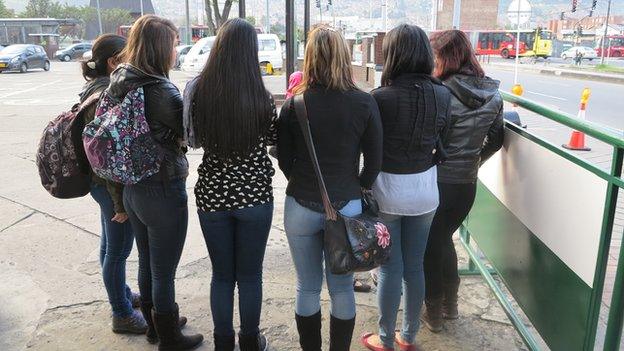
The squad, made up mainly of female officers, is meant to deter potential gropers
It's early in the morning and with her juvenile looks and a rucksack with a flowery pattern dangling from one shoulder, 22-year-old Laura looks like just another student rushing to class on Bogota's mass transit system - the Transmilenio.
But she is not. Laura is a Colombian policewoman and she is on a mission.
She is part of a special squad of undercover agents trying to clamp down on sexual harassment on Bogota's public bus network.
On patrol with her are seven other plainclothes police officers, most of them women.
They are keeping an eye out for gropers, men who will take advantage of the packed busses to touch women or rub against them indecently.
Elite squad
It is no small task: on average the Transmilenio bus system transports about two million passengers a day.
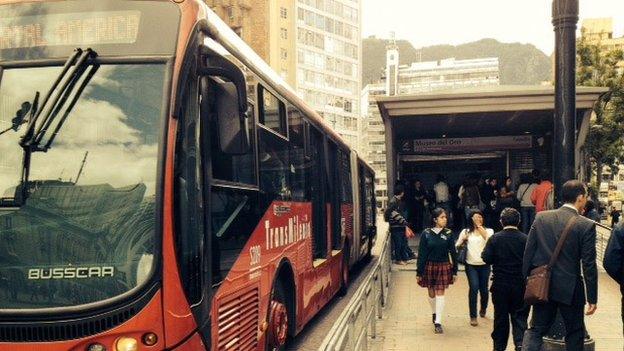
Transmilenio buses transport an average of two million people per day
An in a survey conducted a couple of years ago, six out of every 10 women in Bogota said they had been sexually harassed at least once on the city's overcrowded buses.
While few ever press charges, the number of formal complaints has been steadily rising: from 81 in 2013 to more than 150 in the first eight months of 2014.
But Laura is confident the new initiative is working.
"We haven't been receiving as many reports of groping and other abuses as when we first started," she explains, as the anti-groping squad stops for a quick breakfast at the end of the line before heading back in the opposite direction.
The police officer in charge of the squad, Lt Lina Maria Rios, confirms there has been a slight decrease in the number of reported cases since the Transmileno Elite Group, as the squad is know, took up its work.
"It's too early to tell, but it seems the tide is turning," she says.
'No entrapment'
The squad has made 17 arrests, the majority in the first two weeks since it started its patrols.
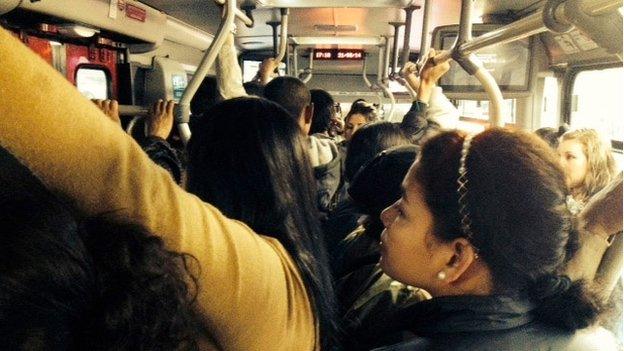
Transmilenio buses are often overcrowded making it easy for gropers to sidle up to their victims
"It could be that potential offenders are thinking about it twice, because they don't want to risk groping a girl who might be an undercover cop, although I cannot guarantee it," says Lt Rios.
The idea behind the squad is to act as a deterrent to potential gropers.
The women on the squad stress they are not acting as bait for potential offenders, something the local media suggested after the female officers attended the media launch wearing tight jeans.
"That would be entrapment, we'd be the ones committing a crime," explains Nestor, one of four men in the team.
Seven out of the 11 squad members are female, but they were selected for their experience in undercover work, intelligence gathering and dealing with vulnerable groups.
They say the reason for having a mainly female squad has to do more with the potential victims than the perpetrators.
"Other women won't feel uneasy if we are the ones who keep looking in their direction during a potentially embarrassing situation", explains Yuri, a specialist in intelligence-gathering trained to identify suspicious patterns of behaviour.
'Not alone'
"It's also about letting women know they're not alone, that the women in the police force have their backs," explains Lt Rios.
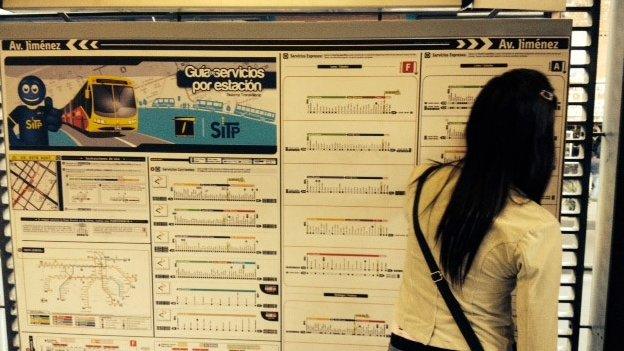
The officers ride the line to the end, and then back, on the lookout for potential offenders
Another squad member also called Lina says she already worked undercover patrolling Transmilenio's buses for pickpockets before joining the team.
But she says working in the anti-groping squad is very different.
She explains that the offenders are rarely violent when captured, and stresses that they come from all walks of life, "young and old, rich and poor, strange and normal looking".
Lina says that because there is no clear profile for the offenders, they have been trained to look for suspicious behaviour rather than a certain look.
They are on the look out for men who stare at women's breasts or behinds, who lean too heavily against women, or keep their hands down when it would make more sense to hold on to the handrails.
They are ready to pounce when it is clear inappropriate contact has been made and it has not been accidental.
Change of attitude
But catching offenders red-handed is only part of the agents' job.
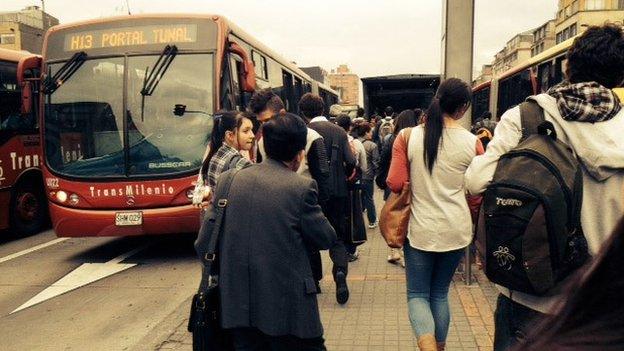
The agents want to encourage victims to press charges
They are also deployed as a quick-response team for all complaints of sexual abuse on the Transmilenio network
The idea is that quick and decisive action will convince the victims that the authorities are taking the matter seriously and encourage them to press charges.
"Many victims don't report the abuses because they believe it's a waste of time. We want to change that," explains squad member Leydi.
Another agent recalls how she herself had her behind grabbed when she was getting out of a Transmilenio bus when she first came to Bogota.
"I managed to punch the guy in the chest before the doors closed, but it's a horrible sensation, you feel impotent," she recalls.
With surveys suggesting that a quarter of men in the city still believe that there is nothing wrong with grabbing, groping or fondling a fellow passenger, the squad has its work cut out.
But even though the officers know that under the current legislation most offenders are unlikely to spend time in jail, they hope their job will at least raise awareness.
"That's why we're doing this, to make sure these sort of things don't happen again," one of the female agents says.
- Published15 September 2013
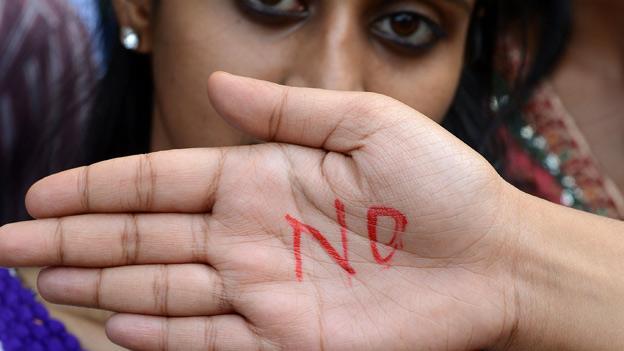
- Published28 February 2013
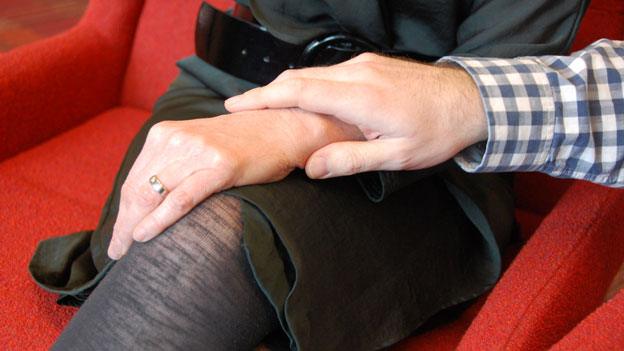
- Published25 March 2011